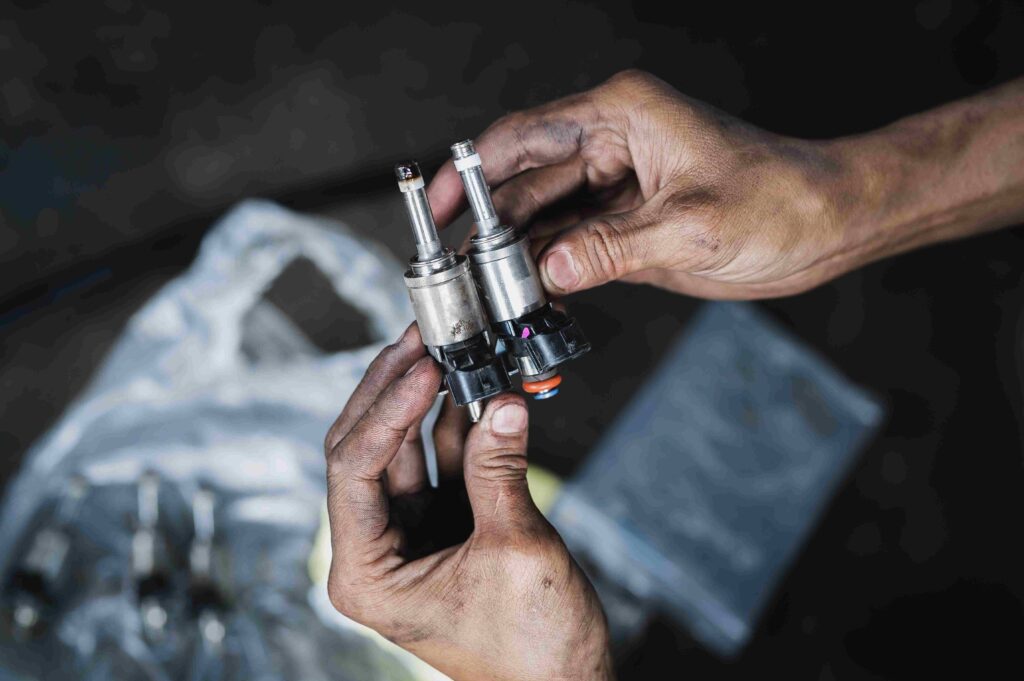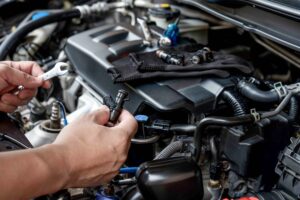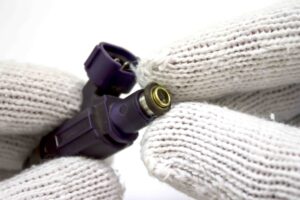Are Fuel Injectors Covered Under Warranty
Are Fuel Injectors covered under warranty? If your car is covered under a manufacturer or factory warranty, repairs are generally covered at no cost to you. However, most manufacturer warranties only last a certain amount of time or mileage, with most standard factory warranties ending at 3 years or 36,000 miles. If your car’s Fuel Injectors break unexpectedly and your manufacturer’s warranty expired, then you’ll left paying those costly repair bills on your own.
It’s important to check the warranty information for your specific vehicle before making any repairs. Some warranties may cover the cost of repairs, while others may only cover the cost of replacement parts.
Manufacturer’s Warranty
When Fuel Injectors break, they are commonly covered by the vehicle’s Manufacturer Warranty. This coverage typically applies to defects in materials or workmanship during the warranty period. The warranty duration for a vehicle’s Fuel Injectors can vary. It may range from a few years to the vehicle’s lifetime. Check your vehicle’s warranty documentation or contact the manufacturer for coverage period.
Manufacturer warranties frequently include exclusions, such as coverage for typical wear and tear or damage resulting from accidents, misuse, or modifications by the owner. Should your vehicle’s Fuel Injectors break, you can usually get it fixed or replaced at an authorized dealership or service center. In order to secure warranty coverage for your vehicle, proof of ownership is typically required. This can be provided through your vehicle’s registration or purchase documents.
Extended Warranty
Consumers may choose to buy a Mopar Extended Warranty to cover Fuel Injectors Valve. These are frequently provided by third-party companies or retailers and can offer coverage beyond the manufacturer’s warranty. Carefully review the policy to understand the coverage and circumstances for repairs under extended warranties.
The Mopar Maximum Care Warranty, also known as the “bumper-to-bumper” warranty, is the most comprehensive extended coverage available for Chrysler, Dodge, Jeep or Ram. It extends your Chrysler, Dodge, Jeep or Ram’s powertrain and basic component coverage beyond the 3-year/36,000-mile manufacturer’s warranty. Additionally, it covers more than 5,000 components, providing virtually complete mechanical coverage for your vehicle.
The only components not covered under this warranty include:
- Maintenance services and items used in such services.
- Glass, plastic lenses.
- Body and paint items, including soft trim.
- Wear items such as manual clutch assembly, brake pads, shoes, rotors, drums and belts are not covered at any time.
- Snowplows, winches and trailer hitches
Signs of Failing Fuel Injectors
These small yet mighty components ensure the precise delivery of fuel into the engine’s combustion chamber, optimizing performance and fuel efficiency. However, like any mechanical part, fuel injectors are susceptible to wear and tear, potentially leading to performance issues and decreased efficiency.
As responsible car owners, it’s essential to be vigilant and recognize the signs of failing fuel injectors before they escalate into more significant problems. Here are some key indicators to watch out for:
- Engine Misfires. One of the most common symptoms of failing fuel injectors is engine misfires. You may notice a noticeable stutter or hesitation during acceleration, particularly under load. Misfires occur when the fuel injector fails to deliver the precise amount of fuel needed for combustion, disrupting the engine’s smooth operation.
- Rough Idle. A Rough Idle is another telltale sign of potential fuel injector issues. If your vehicle’s engine idles roughly, sputters, or fluctuates in RPM while stationary, it could indicate uneven fuel distribution caused by malfunctioning injectors.
- Decreased Fuel Efficiency. Keep an eye on your vehicle’s fuel efficiency. If you notice a sudden drop in miles per gallon (MPG) without any other apparent cause, such as changes in driving habits or environmental conditions, failing fuel injectors could be to blame. Inefficient fuel delivery leads to wasted fuel, resulting in decreased fuel economy over time.
-
Engine Performance Issues. Failing fuel injectors can also manifest as overall decreased engine performance. You may experience sluggish acceleration, reduced power output, or difficulty maintaining consistent speed. These symptoms can detract from the driving experience and may indicate underlying injector problems.
- Strange Engine Sounds. Faulty fuel injectors can produce peculiar engine sounds that differ from normal operation. Listen for unusual hissing, clicking, or tapping noises emanating from the engine bay, particularly during acceleration or while the vehicle is under load. These sounds may indicate injector leakage or mechanical failure.
- Check Engine Light Illumination. Modern vehicles are equipped with onboard diagnostics systems that monitor various engine parameters, including fuel injection performance. If your vehicle’s check engine light illuminates, it’s crucial not to ignore it. A diagnostic scan can reveal trouble codes related to fuel injectors or other components requiring attention.
- Strong Odors or Smoke. In severe cases of fuel injector failure, you may detect strong fuel odors inside or outside the vehicle, especially near the engine bay. Additionally, excessive smoke from the exhaust, particularly if it appears black or emits a strong fuel smell, could indicate unburned fuel due to injector issues.






